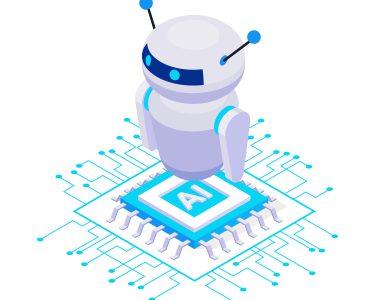China is introducing new regulations to boost security for its rapidly growing artificial intelligence (AI) industry. The country’s cybersecurity regulators have announced that AI service providers, including Open AI’s language model Chat GPT and others, will be required to undergo mandatory security assessments.
The announcement comes amid heightened concerns about the potential misuse of AI technology by bad actors, particularly in areas such as deep fakes and cyberattacks. China’s move to regulate the AI industry is seen as an attempt to safeguard national security interests and prevent the technology from being used for malicious purposes.
According to the new regulations, AI service providers will be required to register with the Cyberspace Administration of China (CAC) and undergo a comprehensive security assessment before they can operate in the country. The assessment will evaluate the company’s AI technology, data security measures, and operational procedures, among other factors.
The security assessment will be carried out by a panel of experts appointed by the CAC, and the results will determine whether the company can operate in China’s market. The regulations are set to take effect on May 1, 2021, and AI service providers will have until August 1, 2021, to complete the security assessment process.
The new regulations will impact a wide range of AI service providers, including companies that develop and offer language models, image recognition technology, and other AI applications. Open AI’s language model Chat GPT, which is widely used by businesses and researchers around the world, is among the companies that will be affected by the new regulations.
The move by China to regulate the AI industry is not surprising given the country’s history of tight control over technology and the internet. In recent years, China has introduced a number of regulations aimed at strengthening cybersecurity, including the Cybersecurity Law, which came into effect in 2017 and requires companies to store data locally and undergo regular security assessments.
The introduction of security assessments for AI service providers is the latest move by China to tighten control over the industry. In 2019, China’s Ministry of Industry and Information Technology announced plans to create a national-level committee to oversee the development of AI technology and set standards for the industry.
The new regulations could have significant implications for the global AI industry, as China is one of the largest markets for AI services and a major player in the development of AI technology. The regulations could also lead to increased competition among AI service providers, as companies seek to meet the new security requirements and gain access to China’s market.
However, the regulations have raised concerns among some industry experts, who fear that the security assessment process could be used to stifle innovation and limit competition. Some experts have also criticized the lack of transparency surrounding the security assessment process and the potential for the process to be used to unfairly target certain companies.
In conclusion, China’s introduction of mandatory security assessments for AI service providers, including Open AI’s Chat GPT and others, is the latest move by the country to tighten control over the AI industry and safeguard national security interests. The new regulations could have significant implications for the global AI industry, but concerns remain about the potential for the security assessment process to be used to limit competition and stifle innovation. As the industry continues to evolve, it will be important to strike a balance between security and innovation to ensure that AI technology is developed and used responsibly.




